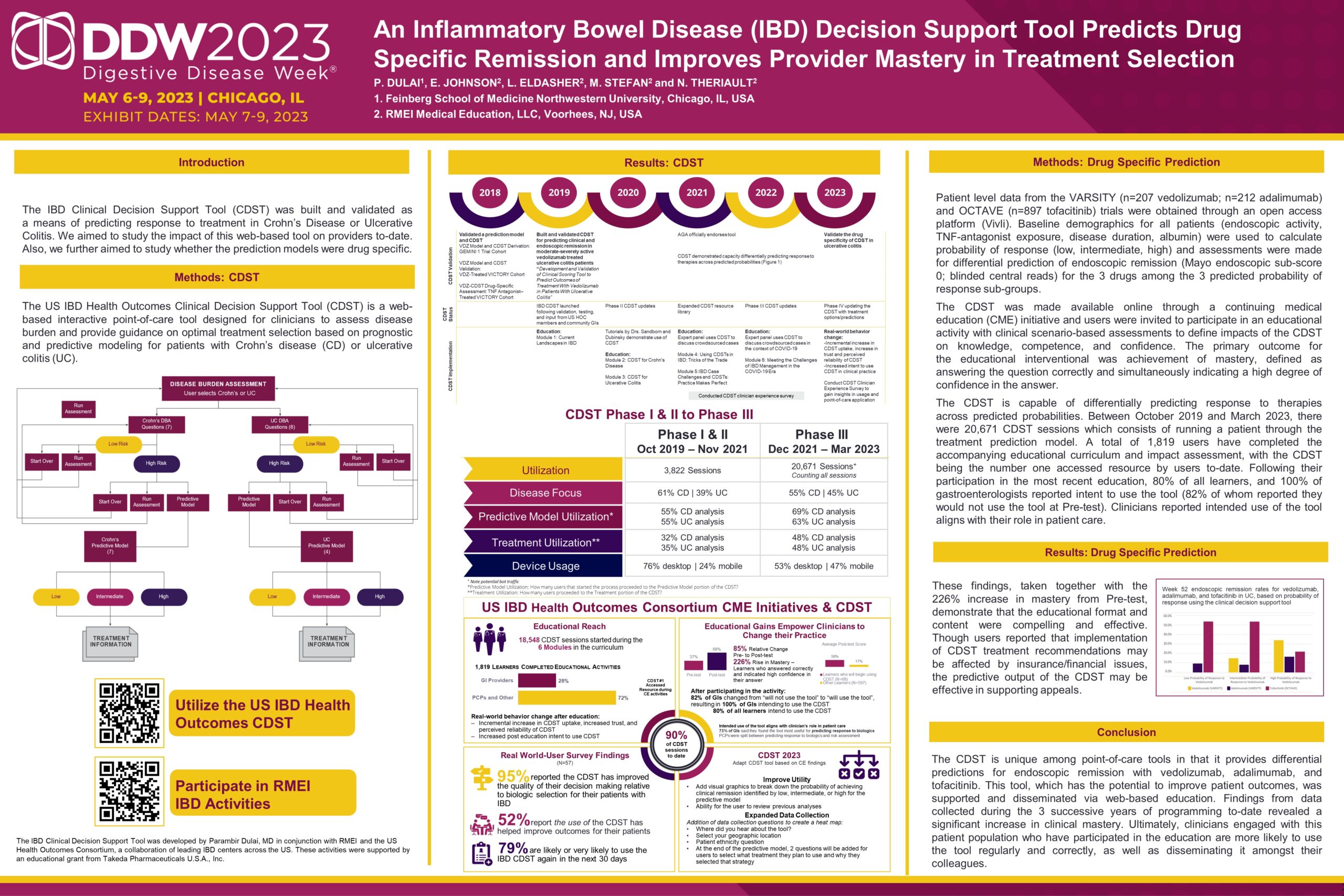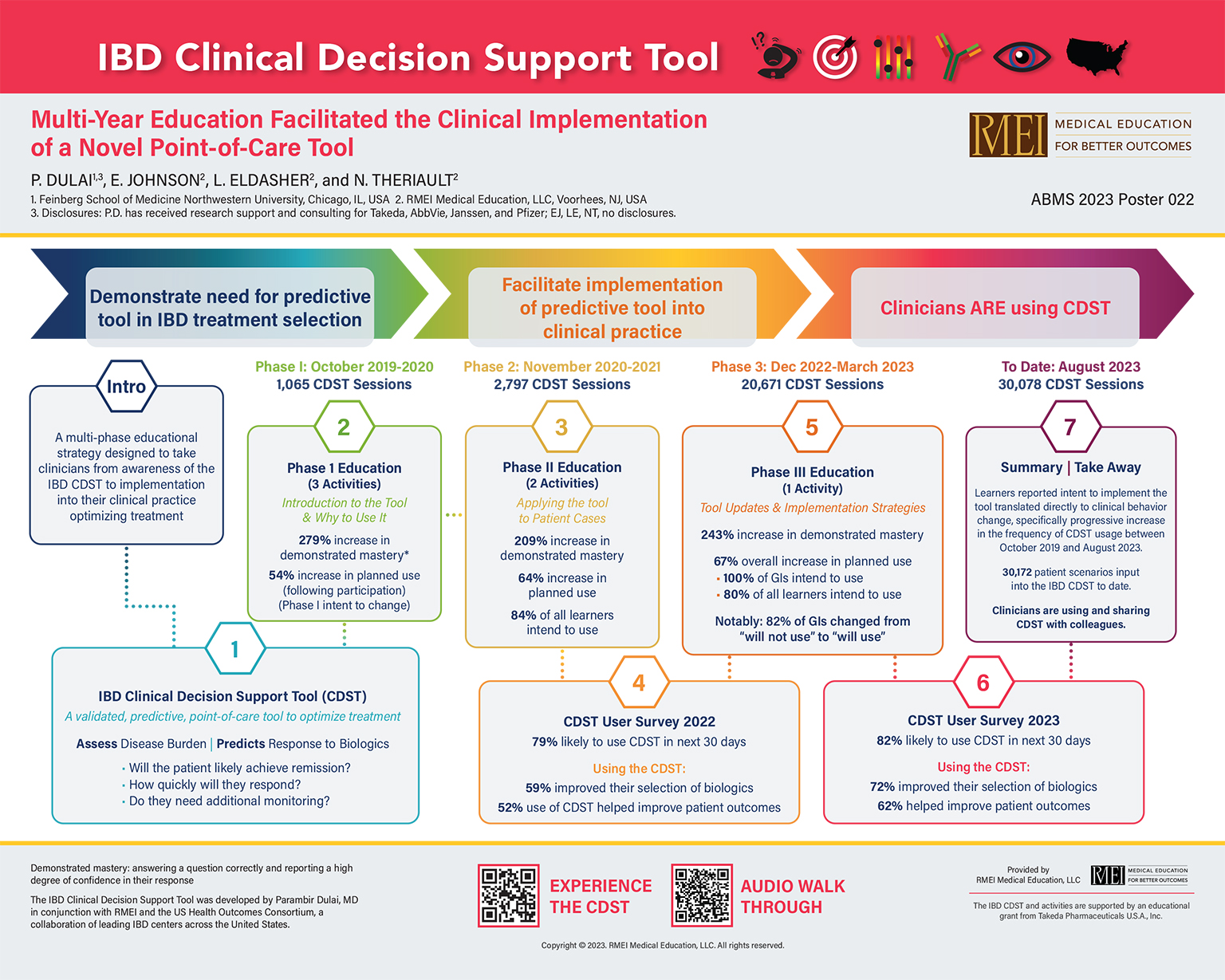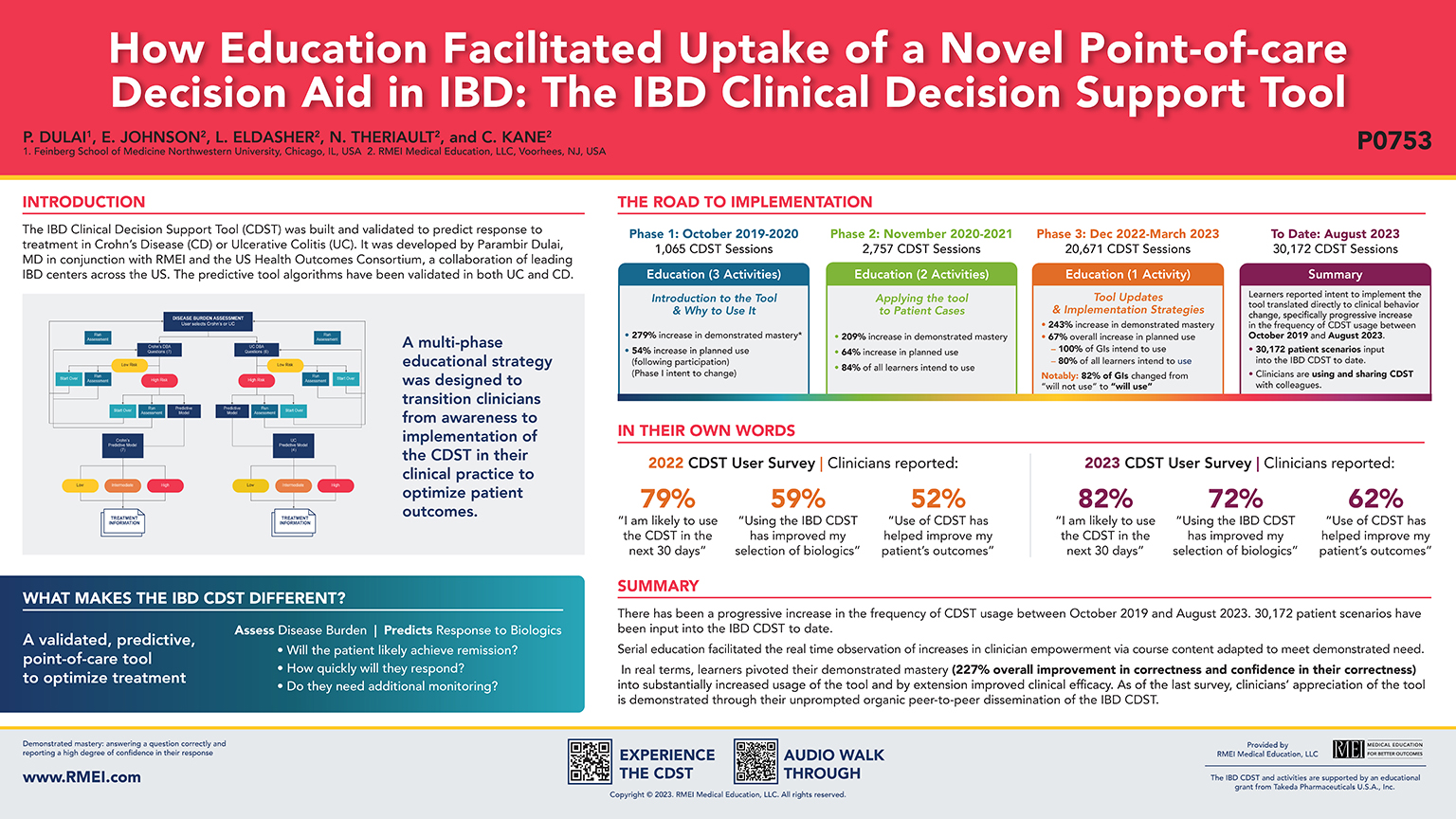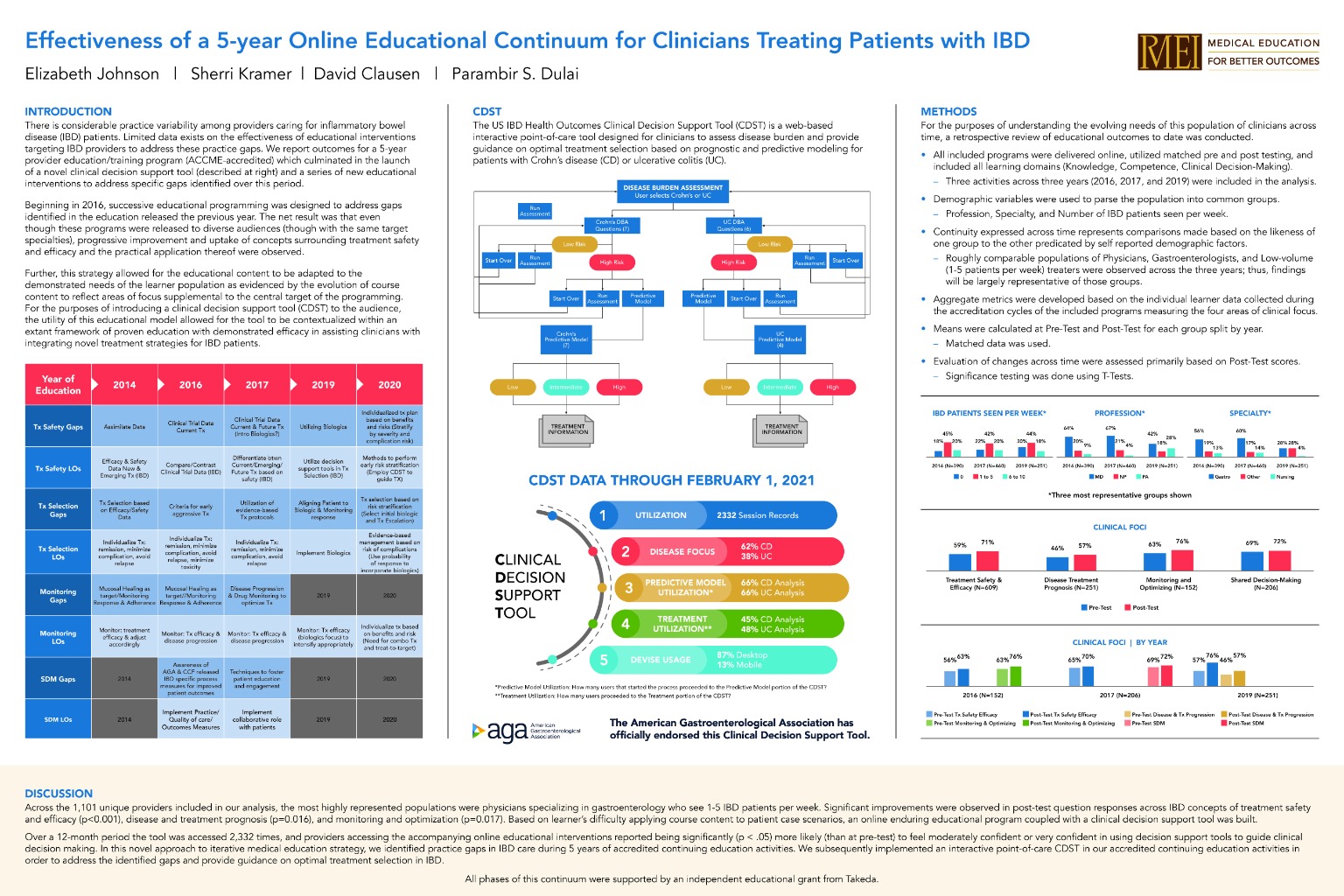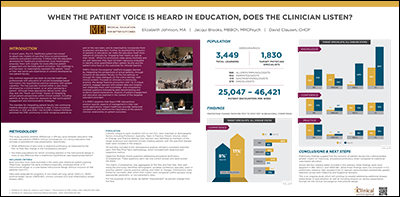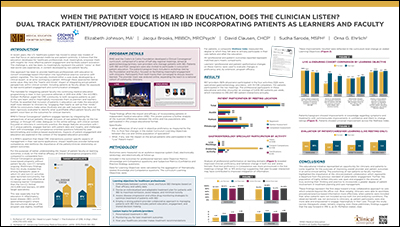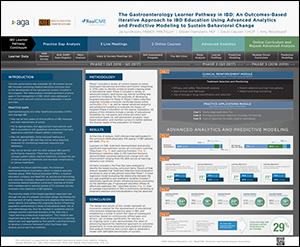An Inflammatory Bowel Disease (IBD) Decision Support Tool Predicts Drug Specific Remission and Improves Provider Mastery in Treatment Selection
The CDST is unique among point-of-care tools in that it provides differential predictions for endoscopic remission with vedolizumab, adalimumab, and tofacitinib. This tool, which has the potential to improve patient outcomes, was supported and disseminated via web-based education. Findings from data collected during the 3 successive years of programming to-date revealed a significant increase in clinical mastery. Ultimately, clinicians engaged with this patient population who have participated in the education are more likely to use the tool regularly and correctly, as well as disseminating it amongst their colleagues.
Presentation Year: 2023
Presented at: Digestive Disease Week (DDW)
- Gastroenterology
- Presented 2023

